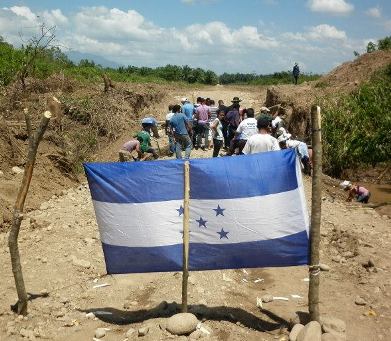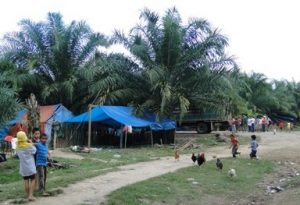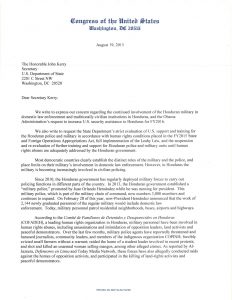Education, Human Rights, International Meddling, Online Resources
Obama´s Militarized Drug War in Central America: Two Articles
Obama and the Militarization of the “Drug War” in Mexico and Central America
May 7th, 2013
Written by Alex Main for the Center for Economic and Policy Research
During his trip last week to Mexico and Costa Rica, President Obama sought to down play the U.S.’s security agenda in the region, emphasizing trade relations, energy cooperation and other more benign themes. In a May 3rdjoint press conference with his Costa Rican counterpart Laura Chinchilla, Obama stated that it was necessary “to recognize that problems like narco-trafficking arise in part when a country is vulnerable because of poverty, because of institutions that are not working for the people, because young people don’t see a brighter future ahead.” Asked by a journalist about the potential use of U.S. warships to counter drug-trafficking, Obama said “I’m not interested in militarizing the struggle against drug trafficking.”
Human rights organizations from North America and Central America have a very different impression of the administration’s regional security policy. In a letter sent to Obama and the other region’s presidents on April 30th, over 145 civil society organizations [PDF] from the U.S., Mexico and the countries of Central America called out U.S. policies that “promote militarization to address organized crime.” These policies, the letter states, have only resulted in a “dramatic surge in violent crime, often reportedly perpetrated by security forces themselves.” The letter presents a scathing indictment of the U.S.-backed so-called “war on drugs” throughout the region:
Human rights abuses against our families and communities are, in many cases, directly attributable to failed and counterproductive security policies that have militarized our societies in the name of the “war on drugs.” The deployment of our countries’ armed forces to combat organized crime and drug-trafficking, and the increasing militarization of police units, endanger already weak civilian institutions and leads to increased human rights violations.
In Mexico, the letter says, “drug-related violence and the militarized response has killed an estimated 80,000 men, women, and children in the past six years. More than 26,000 have been disappeared, and countless numbers have been wounded and traumatized.” The letter also discusses the situation in Guatemala, where violence is “reaching levels only seen during the internal armed conflict” and “controversial ‘security’ policies have placed the military back onto the streets. And, in Honduras:
Since the coup d’état that forced the elected president into exile in 2009, the rule of law has disintegrated while violence and impunity have soared. We are witnessing a resurgence of death squad tactics with targeted killings of land rights advocates, journalists, LGBT activists, lawyers, women’s rights advocates, political activists and the Garifuna’s community. Both military and police are allegedly involved in abuses and killings but are almost never brought to justice.
Though Obama claims that he has sought to avoid “militarizing the struggle against drug trafficking”, the opposite trend has been observed throughout his administration. As the “Just the Facts” database of U.S. military spending in the Western Hemisphere shows, military assistance to Central American countries has significantly increased under Obama, from $51.8 million in 2009, to $76.5 million in 2013 and an anticipated $90 million in 2014.
The Latest Drug War Success Story – Honduras: the Killings Continue
February 26th, 2013
by Nick Alexandrov for Counterpunch.org
Assistant Secretary of State William Brownfield succumbed to a fit of honesty earlier this month: “When the drug war turns bloody, he said, the strategy is working,” journalist Martha Mendoza reported. By Brownfield’s standards, the strategy has been an enormous success.
This is especially true in recent decades for Latin America, where President Clinton undermined the Colombian government’s proposed “policy of investment for social development, reduction of violence and the construction of peace” in the late ’90s. One can question whether Colombia intended to follow up on its stated aims; Washington never bothered to find out, immediately scrapping “development in favor of military aid,” three scholars write in Drugs and Democracy in Latin America, an invaluable resource. U.S. officials favored militarization with full awareness “that U.S.-backed Colombian security forces engaged in ‘death squad tactics’” (the National Security Archive), and the results are what one would have predicted: indigenous peoples, Afro-Colombians, unionists, human rights defenders and others “bear the brunt of the human rights consequences of the long-running internal armed conflict” (Amnesty International).
The effects of U.S.-supported efforts in Mexico have been fundamentally similar, with casualty estimates for the last six years ranging from 60,000 to 120,000, and little impact on trafficking—though this doesn’t imply Washington’s policy has failed. Besides spilling blood, Brownfield explained the U.S. aims chiefly to divert the drug trade to different regions. In the 1980s, Washington’s crackdown on shipments through Florida shifted smuggling to overland routes crossing the U.S.-Mexico border. The beefed-up Border Patrol presence there leaves open the most hostile desert stretches, creating a “physical layout” that “promotes the death of migrants” (investigative journalist Óscar Martínez) and—accompanied by militarization throughout Mexico—the transfer of drug routes to Central America, currently the site of escalating U.S. military activity. Brownfield predicts this “balloon effect” will hit the Caribbean next, which is to say that trafficking will return to what was one of “two main transshipment chains” for cocaine paste by the early 1950s, and the site of well-used “island-hopping wholesale transit routes” in the ’70s, according to historian Paul Gootenberg. The trade will come full circle, in other words, leaving in its wake a group of repressive states, with thousands upon thousands slaughtered, several million survivors living a nightmare—and Western banks “reaping billions” from Colombia’s cocaine shipments, the Guardian reported last summer.
Honduras is one of the latest countries to experience the terror familiar in Colombia and Mexico. In late June 2009, the Honduran military, led by two School of the Americas (SOA) graduates, overthrew President Manuel Zelaya. There were few illusions about the ouster: the Honduran military lawyer who advised the coup plotters—and who was himself an SOA alumnus—admitted Zelaya’s removal was a crime. The State Department agreed, explaining to New York Times, Washington Post, and other reporters immediately after Zelaya’s expulsion that he remained Honduras’ “constitutional president,” meaning his removal from power was “an attempt at a coup.” But none of the reporters on the call relayed this assessment to their readers; instead, they hewed closely to the official State Department line that emerged shortly thereafter, when Secretary of State Clinton stated only in-depth study could determine, at some point down the line, what had happened. A WikiLeaks document reveals U.S. Ambassador Hugo Llorens completed this close analysis about a month later, confirming the initial assumption: it was an illegal coup. Meanwhile, one U.S. businessman in Honduras exhorted Llorens “to have Washington recognize the new government of [Interim] President Micheletti,” warning that “if Zelaya is allowed to return to power with Chávez supporting him, we see NO future for American investment here[.]” He need not have panicked: in November 2009, Porfirio Lobo won an election “complete with state violence against dissidents in the run-up to voting, ballot irregularities, and manufactured turnout numbers,” NACLA’s Michael Corcoran observed. Eighteen months later a conference announced—in English—that the country was “open for business.” When Lobo visited the White House two years later, the headlines told the story: “Obama hails return of Honduras to democratic fold.”
Read full article at counterpunch.org




